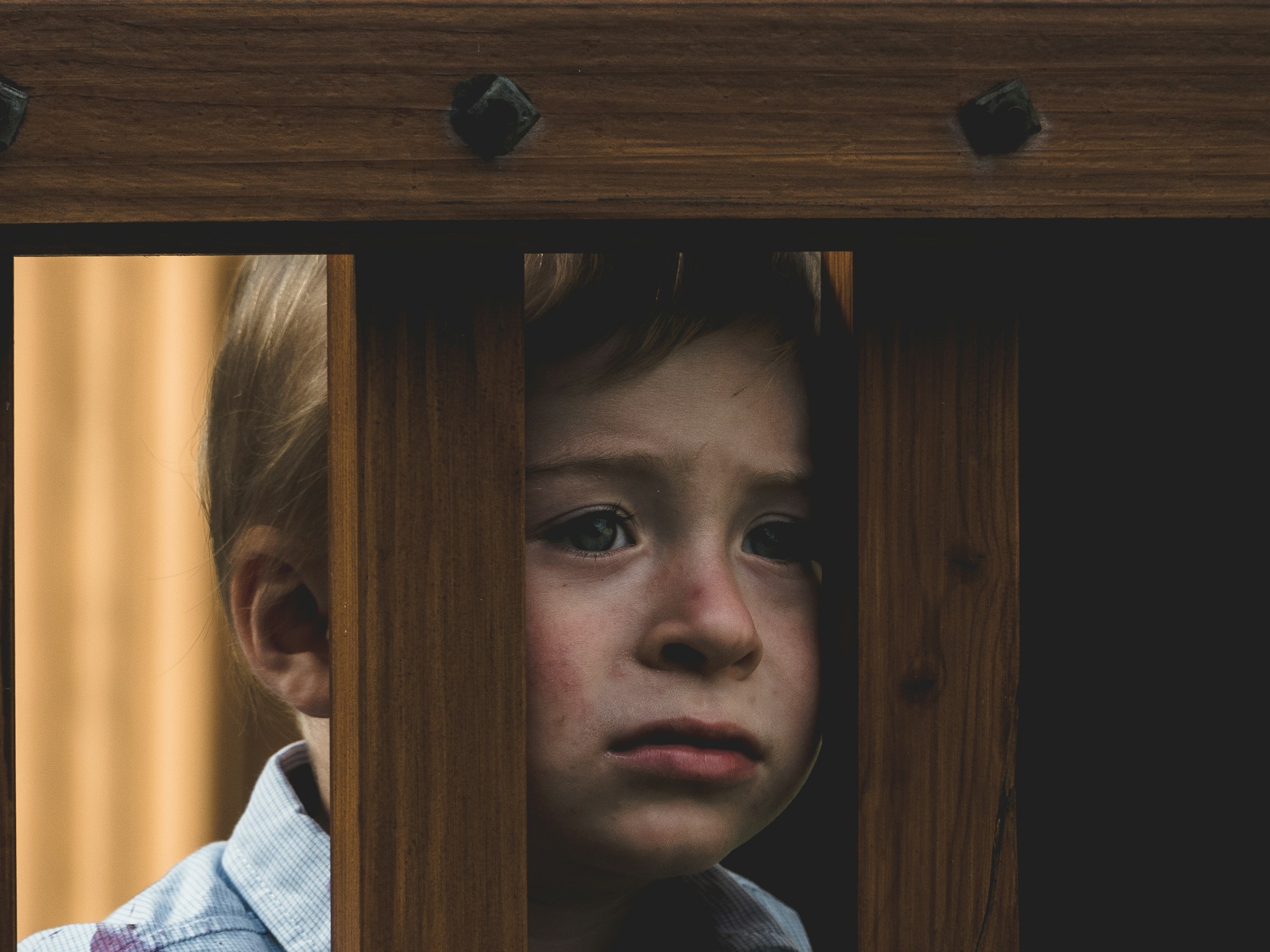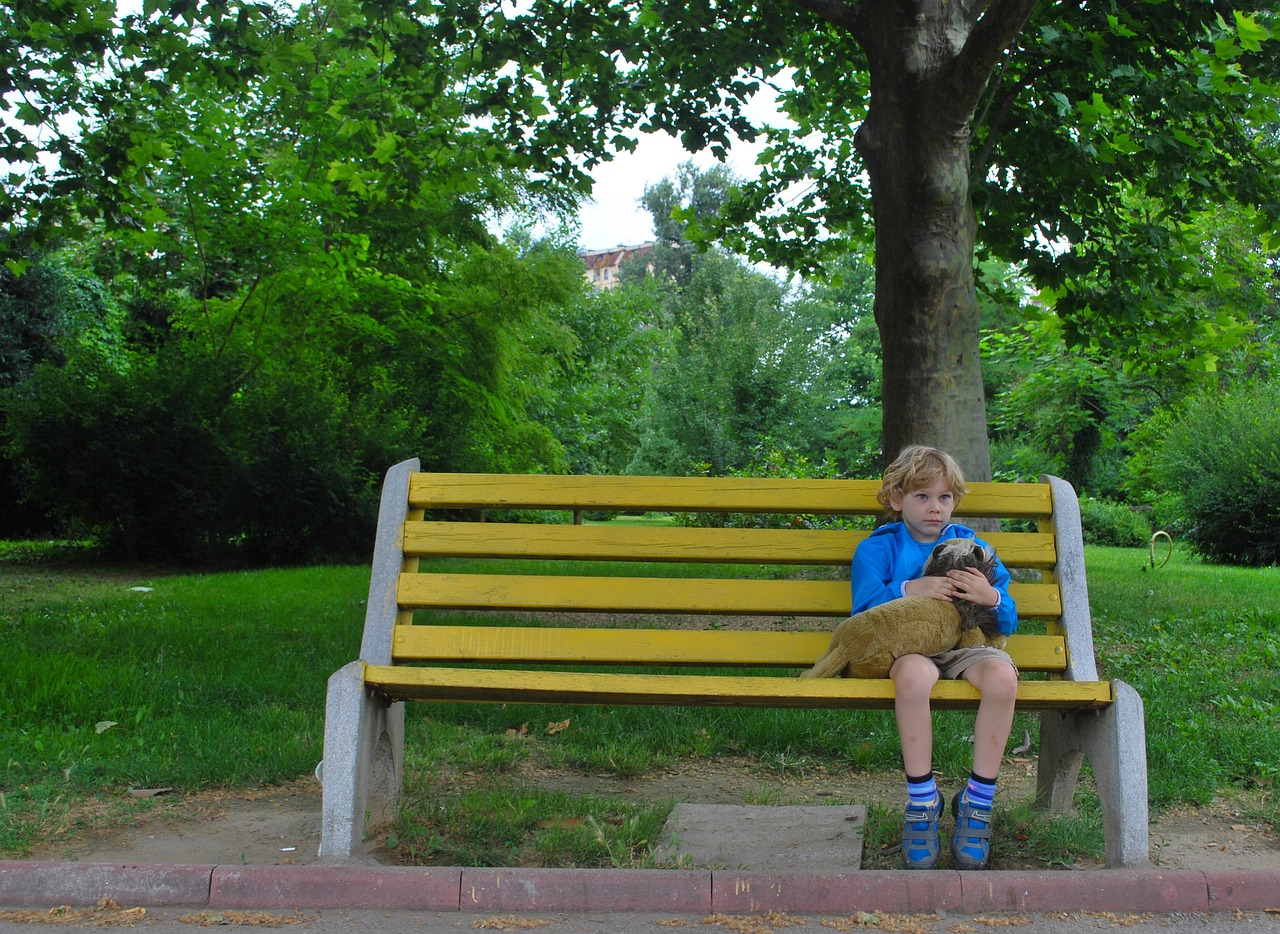There’s nothing we envision for our children more than a life filled with laughter, new experiences, and love. But an unfortunate reality for many children is bullying—whether it be verbal or physical, bullying takes place in many forms and can have long-lasting effects. Here are 10 signs your child may be getting bullied and 10 ways you can help them through it.
1. Unexplained Injuries
Children inadvertently hurt themselves all the time. However, if yours come home with unexplained injuries, it could be a sign that something more sinister is afoot. Additionally, if you spot ripped clothing or missing belongings, it's time to talk.
 Photo by Caleb Woods on Unsplash
Photo by Caleb Woods on Unsplash
2. Behavioral Changes
Sudden behavioral changes are often a good indicator of problems at school. Children who stop eating, start wetting the bed, or become progressively distant may be dealing with bullies.
 Photo by Tadeusz Lakota on Unsplash
Photo by Tadeusz Lakota on Unsplash
3. Fear of School
Wanting to skip the odd day at school is normal. But if your child seems afraid to go, it’s a red flag to monitor. Clingy behavior, tantrums, and crying are a few warning signs to keep an eye on.
 Image by Bob Dmyt from Pixabay
Image by Bob Dmyt from Pixabay
4. More Excuses
In an attempt to hide what’s going on, your child may not exhibit telltale signs of fear. But if you notice that they constantly complain of illness without any symptoms—particularly headaches or stomachaches—they could be trying to avoid trouble at school.
 https://unsplash.com/photos/blonde-haired-boy-in-grey-top-leaning-on-glass-door-9-nGBzwzquo
https://unsplash.com/photos/blonde-haired-boy-in-grey-top-leaning-on-glass-door-9-nGBzwzquo
5. Trouble Sleeping
While we all toss and turn before a stressful event, bullied children worry every night about what may happen at school the next day. Loss of sleep or frequent nightmares are often glaring signs your child has something on their mind.
 Photo by Luke Pennystan on Unsplash
Photo by Luke Pennystan on Unsplash
6. Growing Distant
Children who beeline for their rooms after school, or grow distant from their family and friends, may be suffering at school. If you see major changes in their personality, it could be a good indicator you need to speak with them.
 Photo by Annie Spratt on Unsplash
Photo by Annie Spratt on Unsplash
7. Avoiding the Bus
Bus stops, and even the bus ride, can be a hotspot for bullies. Teachers aren’t present and the ride to and from school can be a long one. If your child seems nervous about riding the bus, it’s often a red flag to keep on the radar.
 Image by Mojca-Peter from Pixabay
Image by Mojca-Peter from Pixabay
8. Schoolwork Suffers
Bullying weighs heavily on a child’s mind and can impact their ability to concentrate on schoolwork. A noticeable decline in grades may be a signal something is wrong.
 Photo by Compare Fibre on Unsplash
Photo by Compare Fibre on Unsplash
9. Lost Friendships
The sad fact is that bullying’s ripple effect impacts existing relationships. If your child stops spending time with their friends or their social circle gets smaller, something could be going on.
 Photo by Francisco Gonzalez on Unsplash
Photo by Francisco Gonzalez on Unsplash
10. No Discussion of School
Bullied children are often too ashamed or afraid to discuss what's going on. If your children deflect conversations about their day, they could be trying to hide instances of mistreatment—or want to avoid the subject altogether.
 Photo by Thomas Park on Unsplash
Photo by Thomas Park on Unsplash
If your child has confided in you about their experiences, here are some ways you can help them.
1. Listen Intently
It’s hard for children to speak up about bullying, so your first job is to listen. Don’t dismiss their experience as that will only belittle them and encourage them not to come to you in the future. Ask them to explain what happened and reassure them that you’re there to help.
 Image by Shlomaster from Pixabay
Image by Shlomaster from Pixabay
2. Build Confidence
Assure your child that the bullying is not their fault. It’s also a good time to remind them that they aren’t what their bullies say. Emphasize your child’s positive qualities to help them feel loved and gain confidence.
 Photo by Eye for Ebony on Unsplash
Photo by Eye for Ebony on Unsplash
3. Document Everything
Keep a log of when your child is being bullied, where, and how. Document everything with as much detail as possible to ensure you have evidence should things escalate.
 Photo by Unseen Studio on Unsplash
Photo by Unseen Studio on Unsplash
4. Remain Calm
Your knee-jerk response might be to storm over to the school and demand a meeting with faculty—but this could easily make things worse for you and your child. Try to keep emotions out of it so school staff and faculty can work with you, not against you.
 Photo by Gabe Pierce on Unsplash
Photo by Gabe Pierce on Unsplash
5. Learn Anti-Bullying Policies
Familiarize yourself with the school’s anti-bullying policies to learn how violations are handled. Their policies should also outline which staff members you can speak with.
 Photo by Laurent Peignault on Unsplash
Photo by Laurent Peignault on Unsplash
6. Schedule a Meeting
Meet with the bully’s parents and appropriate staff during school hours. Remember: it can be tempting to demand that a bully be suspended or expelled, but these suggestions oftentimes lead to defensive responses. Bring documented evidence and try to keep emotions out of it as you work to address a solution per school policies.
 Photo by Christina @ wocintechchat.com on Unsplash
Photo by Christina @ wocintechchat.com on Unsplash
7. Stay Vigilant
In a perfect world, a meeting would immediately address all concerns, and the situation could become an ugly thing of the past. But that isn’t always the case. Ask your child for updates and stay on top of the school if they haven’t taken any steps to fix the problem.
 Photo by Amy Hirschi on Unsplash
Photo by Amy Hirschi on Unsplash
8. Keep Your Child in the Loop
Make an active effort to keep your children involved in next steps. Tell them what you’ve done so far, ask them what they would like to see done, and keep the lines of communication open.
 Image by Tammy Cuff from Pixabay
Image by Tammy Cuff from Pixabay
9. Don’t Forget the District
If you’re unhappy with how a teacher or principal handles the situation, bring your case to the school district. Don’t take inaction lying down—keep a paper trail of who you’ve spoken with and their responses as you move up the chain of command.
 Photo by Cytonn Photography on Unsplash
Photo by Cytonn Photography on Unsplash
10. Go Further if Needed
When bullying is criminal, you’re within your rights to contact the police. Bring all evidence to the police so they can open a case, and stay on top of their action plan. You can also look into contacting a lawyer if need be.








